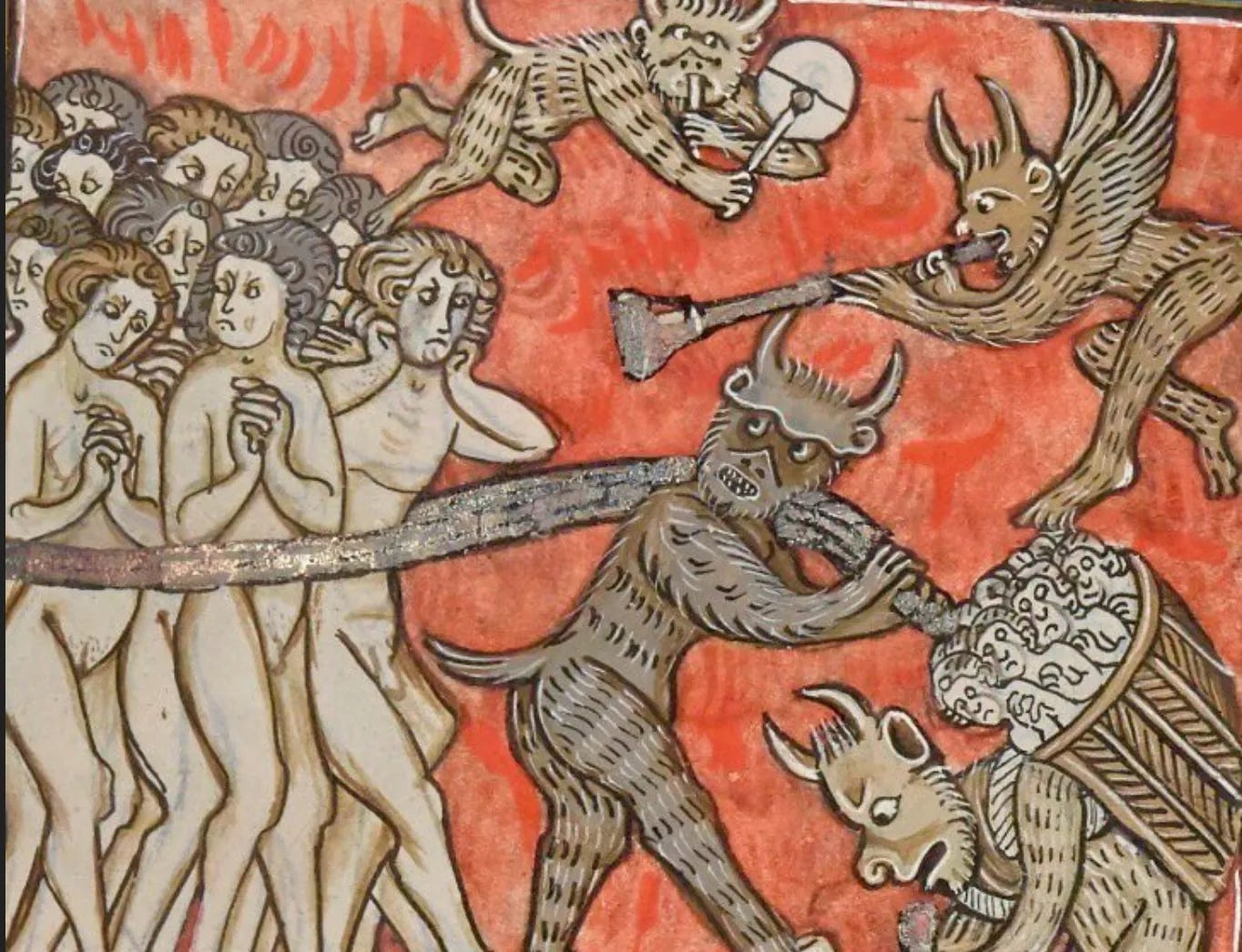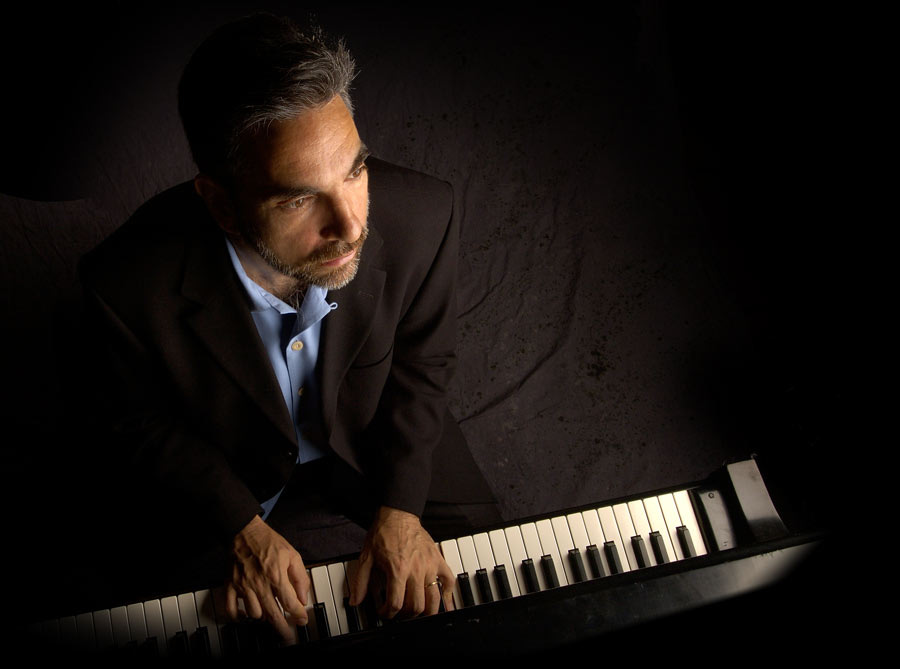The Music Gig from Hell
A jazz musician shares an email from a venue—and you won't believe what they're demanding
I’ll send out the second installment of my 100 favorite albums of the year over the weekend. This is a special feature for paid subscribers to The Honest Broker. (Here’s a link to the first installment.)
In the meantime, I want to share the latest entry in the competition for the “Music Gig from Hell.”
The Honest Broker is a reader-supported guide to music, books, media, & culture. Both free and paid subscriptions are available. If you want to support my work, the best way is by taking out a paid subscription.
Just One More Music Gig in Hell
This comes from the outstanding jazz pianist and B-3 organist Mike LeDonne, who recently received an email from a booking agent. The sender asked whether LeDonne would be interested playing at a venue in Brooklyn.
He hadn’t heard of the place, so he asked for more details.
He soon learned that it was a “door gig”—in other words, the venue would make no guarantee of payment. Musicians who take these gigs are promised some portion of revenues (usually ticket receipts), and so they play at their own financial risk.
I’m puzzled why these kinds of arrangements are legal. I once even talked to some law school professors about this matter. But they assured me that this is all perfectly okay. Yet we all knew that you can’t get away with paying cooks, bartenders, serving staff, or even dishwashers with a share of uncertain revenues.
Those folks get minimum wage or better. Only musicians are expected to show up for the gig with no guaranteed payment.
So Mike LeDonne turned down the gig. But that’s not the end of the story.
Give a gift subscription to The Honest Broker this holiday season.
“I noticed that there was a ton of information as I scrolled down the email,” he explains, “and as I read along I was stunned by its audacity.”
The text started out with an innocent request for basic details. What’s the name of the band? What instruments are you playing? What’s your email address and phone number? Etc.
But then the questions got more intrusive.
The venue wanted to know the age of every member of the band, and then asked for the locations of previous gigs with a headcount of people who attended. But that was just a start, because now the venue began listing its own demands.
I’m not making this up. The musician gets no guarantees. But the venue has plenty of them—even a non-compete clause, as it turned out.
But it’s best for you to read it yourself:
[What is] roughly the number of fans you can draw to the show:
Do you guarantee to draw that number of fans to any and all shows that you would be booking with us:
Do you guarantee to make a public Facebook event (or use our Facebook event), and do visible online promotions for the show that we can periodically check on:
Do you guarantee to not book any local shows within 2 weeks prior & 2 weeks after your date scheduled with us:
How do you plan to promote the show:
Do you understand that if you draw zero people to the show, there is no guarantee that any other band’s fans will stay and watch your show, and we will not have the confidence to be able to rebook you for another show:
Do you understand that unless you have a legitimate emergency, if you cancel last minute we won’t be able to book you again:
Have you read the show info provided for you, and have you read the door deal:
**********KEEP SCROLLING DOWN**************
************PLEASE READ THE FOLLOWING- VERY IMPORTANT************
20 - 40+ FAN DRAW REQUIREMENTS All artists are screened and booked based on quality and on how many people they can draw to the show, so it is extremely important that you can bring a following of at least 20+ - 40+ people, depending on the venue and the time slot. If you cannot meet the draw requirements, please do not book a show.
We also ask that you do not book any local shows within 2 weeks prior & 2 weeks after your scheduled show with us. We really prefer that you only did local shows once a month or once every 6 weeks, and we explain why below in the “Special Tips and Tricks: How To Successfully Promote and Draw Fans To Your Show” section, but if you can honestly handle more than that draw-wise, good for you and go for it. Usually though, it is the best way to ensure that your following can make all shows and attach value and priority to your shows, because they are always a big deal and don’t happen too often but just often enough to be something you never want to miss. When achieved, it is truly the biggest win-win situation for everyone, most especially for the act who is performing."
As if that’s not enough, all the gigs happen on Friday and Saturday—which are the best pay days for musicians. So you give away your choicest time slots for zero guaranteed dollars, and also have to turn down other gigs for almost a month in total to meet the venue’s non-compete demands of “two weeks prior and two weeks after.”
“This is a new low,” was Mike LeDonne’s reaction. “I can't imagine anyone getting to the end of that email and thinking—’OK sounds cool, let's do it!’ But the sad part is that people obviously do.”
Let me close by sharing a video of Mike LeDonne at a much better gig.





I don't know the name of the venue. And I didn't want to turn this into the public shaming of a business. My goal is to highlight the fact that musicians deal with these situations all the time—in some ways, this is the new normal. (In fact, within five minutes of publishing this, somebody emailed me an even worse example of exploitative terms.)
I have played around the San Francisco Bay Area for about 20 years, and I have seen a few venues with similar. In general, if the first question from a booker at a new venue to us is "What's your draw?" I look for gigs elsewhere. I have tried explaining why this was wrong-headed a couple of times, but I think unsuccessfully. The essence of my argument is that venues succeed by being places that their guests learn to trust for their booking acumen. The band most likely to sign up to this kind of commitment is one that plays once or twice a year, doesn't care about the money, and can persuade their friends, family and work colleagues to attend. Since they don't play out much they are probably not that good, and anyone not in their group of friends will not be impressed and not return to the venue. Also, that band's group of friends will likely not come to the venue again. What makes a venue successful is the steady building of a base of people who like the place, trust their booking skills, and return regularly.